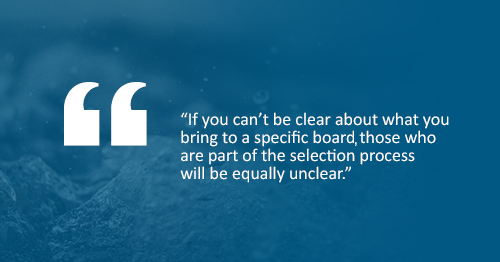Your questions answered
We recently hosted the “Building Your NED Board Profile” as part of our Interim Executive lunch series for our cohort of portfolio professionals. We’ve answered the specific questions raised, but if you would like further information click here to reach out to one of our Partners today.
How do you raise your profile and visibility for the NED market?
Build on your network and most importantly let your network know both your intent to take on board seats as well as what you specifically would bring to a Board. Help your network start to think of you as an NED not an Executive.
 |
|
Graham Willis - Building your Board Portfolio...Myths and Tips “Nudge, nudge. Wink, wink. Know what I mean?” |
How do you approach a new board to determine your fit and the value you bring?
Do your homework. Look at the current board skills matrix and identify gaps that you can fill or add to the skills present. If you do that in parallel with either that company’s strategy or the direction in which that sector is moving, you will be offering a forward-looking solution.
How important is the AICD accreditation in looking for Board members?
In almost every search we undertake there is a preference for AICD or Governance Institute Qualifications. It is not a binary pass/fail but it certainly helps.
What are the hot spots for NEDs currently in the marketplace?
Post Hayne they should be Culture, Remuneration and Governance…for all Boards. We are yet to see a strong flow of those skills into the Boardroom. Outside of that there is a slow increase in broader Technology skills as well as broader Risk skills.
Are boards really looking for cognitive diversity?
What advice would you give on how to protect your personal assets before you accept a board position?
The best protection is quite simply your due diligence. Of course, it is worth checking the D&O insurance for the cover it offers but in the end it’s due diligence combined with acting ethically within a strong governance framework.
How realistic is it, to be able to generate a viable living income from board placements (and portfolio career of interim management) and how many board placements would a typical board member hold?
Interim assignments combine well with building a portfolio however you are most unlikely to replace your executive remuneration with board and Interim roles. There is the potential gap between Interim roles combined with the remuneration you enjoy on all but our largest boards. In terms of a typical number of boards, if you have a full portfolio, somewhere between 3 and 5.
How would you suggest planning a role with a nonprofit board where board roles may not be advertised and skills that are being sought are not very apparent?
Choose 4 or 5 not for profits that you have a personal alignment with. Be clear about what skills you would bring to their board and approach the Chair so that you are in their mind when they are seeking new directors. Many NFPs do not have a cap on Director’s roles (given they are largely unpaid) so you might just create an opportunity.
 |  |  |  |
How do you approach a new board to determine your fit and the value you bring?
Do your homework. Look at the current board skills matrix and identify gaps that you can fill or add to the skills present. If you do that in parallel with either that company’s strategy or the direction in which that sector is moving, you will be offering a forward-looking solution.
What is the single most important value that a new director can bring to a board?
In our view it’s personal integrity…but that should be a given. Assuming it is a given then we would say EQ. The ability and willingness to be present and listen to your Board colleagues and the Executive. The ability to propose a different point of view respectfully and the willingness to leave your perspective or view behind you once the Board has moved past it.

Graham Willis - Building your Board Portfolio...Myths and Tips - Four Top Tips from the Chair
How much time should you expect to put into a Board and how does this differ from company to company?
The amount of time it takes for each company varies considerably. Some boards/committees might only meet quarterly…some will meet monthly with committee work on top of that. As a rule of thumb...and that is all it is, think about 3-5 days per month for each Board /Committee role. Apart from the Board meeting itself and the review of Board Papers that time is unlikely to be in one day lumps…it will be in bits and pieces. If you are the Chair you can plan on investing around 3 times as much time as you would as an NED.
Do you have some tips for new NEDs re how best provide oversight and challenge while resisting the temptation to manage the business?
This all comes down to whether you are ready to be a director. If you ‘need’ to dip into the management of the organisation you are most likely to be an NED in a smaller company or a small NFP where your executive skills are one of the key reasons you are on the board. Other than that, if you cannot stay out of the weeds you are unlikely to be an effective Board Director.
Now, my question for you... How suitable are you for a Board?
The public perception is often that Board seats are the final career step, the last promotion if you will, in a career that will take you all the way from new grad to Chairman of the Board. There’s nothing wrong with that BUT there is in the assumption that all senior executives should be reaching for the boardroom…quite simply they shouldn’t.
A degree of introspection is required to really test whether you are suited to being an NED. If you like, and are good at, the ‘doing’ part of making an impact or are happy in the detail of the processes around operations and processes maybe a consulting or interim gig is the way to go. If your real strength is in sitting alongside the executive team and coaching them to success, then this is a more natural direction to go…that of Coach, not Director.
We can think of several examples where Senior Executives who felt compelled to be looking at Board roles were so relieved to be shown that taking another path was not only credible but a better fit for them. Nobody had really questioned the assumption that their next ‘promotion’ should be to the boardroom…for some it should be, but it might not be for you.
There are literally thousands of board seats that come up for appointment every year so if you have decided this is the career shift for you and you are clear about what you would bring to a board, don’t be put off by the work it takes to achieve that. Treat the process of building your portfolio in a reflective, honest, disciplined and logical manner and much more will happen.
If you’re still looking for more assistance, I have written several blogs on the different myths surrounding building your Board portfolio, read the first in the serieshereorcontact metoday.


